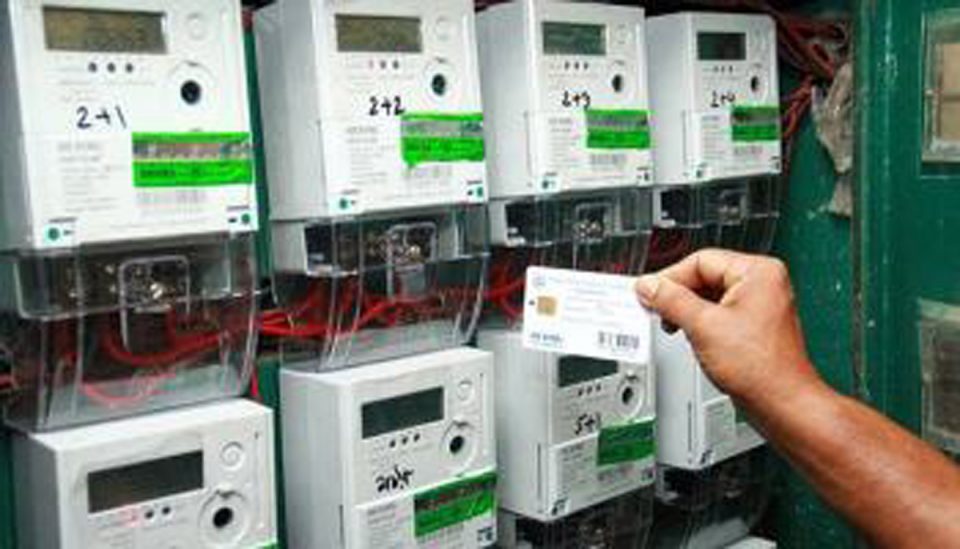Electricity meter increase: stakeholders call for mass metering policy
By Yusuf Yunus
Some stakeholders in the power sector have urged the Federal Government to reactivate the National Mass Metering Programme Policy (NMMPP) to alleviate the difficulties faced by electricity customers.
They said this would assist customers who might not have the financial means to purchase meters.
The stakeholders told the Business Intelligence (TBI Africa) on Sunday in Lagos that the government’s failure to fully implement the NMMPP had hindered meter accessibility.
It would be recalled that the Nigerian Electricity Regulatory Commission (NERC), on Sept. 5, granted approval for an upward adjustment in the prices of prepaid electricity meters.
The cost of single-phase prepaid meter is now N81,975.16k, up from the previous N58,661.69k, while a three-phase prepaid meter is N143,836.10k as against the previous N109,684.36k.
Dr Ayodele Oni, Partner Bloomfield Law, said that the increase in the price of the meter could be attributed to the new macro economic changes in Nigeria, particularly the foreign exchange rates.
Oni said that government could intensify more efforts on the implementation of the phase one of the NMMP.
According to him, the Nigerian Electricity Regulatory Commission (NERC) regulates the prices of the single-phase and three-phase meters.
“Presently, there are four different frameworks for the supply of meters.
“Two of the key frameworks are: the Meter Asset Provider (MAP) and the National Mass Metering Programme (NMMP).
“Previously, the meters were provided by the Meter Asset Providers (MAP) under the old MAP regulation of 2018.
“However, low success was recorded as a key factor responsible for low metering in Nigeria is the price of meters.
“Many Nigerian homes cannot readily afford the prices of the meters.
“This was one of the factors that strengthened the introduction of the NMMP, where FGN (with CBN) aimed to provide over six million meters,” he said.
Oni said that the NMPP was supposed to ease the diffculties of purchasing a meter on average Nigerians.
“Essentially, under the NMMP, the meters would be installed by DisCos at the premises of the customer without payment other than the end user tariff,” he explained.
The expert said that government should focus on the NMMP, to serve an incentive to ease the effect of the new economic realities on Nigerians.
He said that the increase in the prices of meters might be inevitable, but Nigerians could still afford the new prices and would purchase under other frameworks.
“However, the phase one of the NMMP should be reignited to ensure more Nigerians have access to meters.
Emeka Ojoko, Executive Coordinator, NEPA WAHALA NG, said that the increment was not entirely unexpected, considering that most meters used in Nigeria are imported despite the existence of local manufacturing capacity.
Ojoko said that the exchange rate float by the Tinubu administration was bound to affect meter prices.
“Nigerians should brace up. Things will get worse before they get better.
“Those who can afford it should invest in alternative energy sources like solar, etc.
“Government should take steps to cushion the effects on Nigerians by fiscal incentives for importations or manufacturing that will reduce the cost of alternative energy generation devices.
“So, they can be more affordable, fast-forward meter installation under the NMMP, also deepens local meter manufacturing capacity.
“This would cushion the cost of meters against fluctuations in foreign exchange rates,” he added.
Dr Olukayode Akinrolabu, Chairman Customer Consultative Forum Festac/Satellite District, said that the hike in cost of prepaid meters was imminent before now.
Akinrolabu said that end user of the prepaid meter were usually affected.
“The era of this government is bedeviled by myriad of hydra headed challenges.
“Now, the reason for hike is fluctuating dollar rate. What happens should the rate falls.
“Today, none of the vendors is claiming that they have excess in their repository or warehouse because it has to do with increment in their favour.
“But, when the rate drops, would not the vendors claim that, they have excess in their warehouse, hence, making reduction of cost impossible,” he said.




